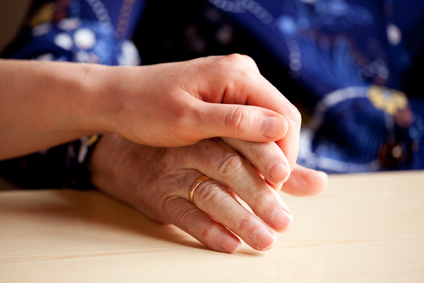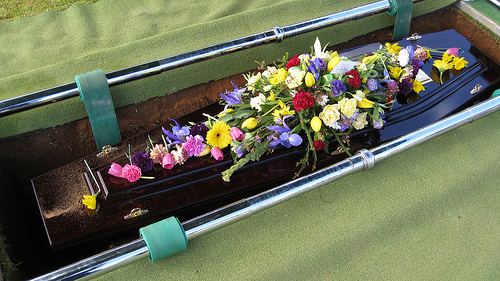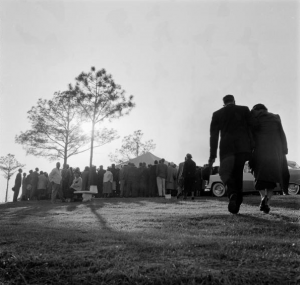Plan a Funeral
Death of a Loved One Checklist
Checklist to Help Families Get Through a Difficult Time
Losing a loved one is arguably one of the most difficult experiences in life. In addition to coping with the grief and loss, there are also a variety of challenging tasks and important financial decisions to be completed, some of which include:
– Making final arrangements
– Reviewing funeral costs and funding options
– Settling an individual’s estate and heirlooms
– Notifying family, friends and co-workers
– Working with various companies and government agencies
– Providing important vital statistics for insurance claims and death certificates
– Securing the financial security of the remaining spouse
Time-Sensitive Tasks
Contact all close family members, friends, co-workers and clergy first. This is not only important to notify them of this loss, but because you will need their help with funeral planning and emotional support.
Begin working with the family and loved ones to arrange the funeral, burial or cremation and memorial services. Since everyone knows that death is a guaranteed event, my hope is that financial professionals have properly planned and prepared their clients and prospective clients in most of these End of Life arrangements ahead of time.
Review all of the important paperwork and documents to identify any instruction containing their final wishes. In most cases, these key End of Life and estate planning instructions can be found in his or her Last Will, Living Trust, or other estate planning preparations.
Notify family, friends, co-workers and loved ones of the final arrangements. These final arrangement notifications should include details such as cultural and religious rituals, funeral etiquette details, and funeral flowers or donation preferences.
Notify the decedent’s place of work, professional organizations, unions, associations, military branch, and any other organizations where he or she may have been a member or volunteer.
Recommend that each of the decedent’s loved ones notify their own personal employer and arrange for bereavement leave.
Make sure that an obituary is created in your local newspaper as well as on the Internet.
Promptly begin obtaining certified copies of the death certificate. In most cases the family doctor or medical examiner provides a death certificate within 24 hours of the death. The next step is for the Funeral Home and/or Funeral Director to complete the form and file it with the state. Note: Be sure to request and obtain many original copies, since photocopies are not always accepted. These death certificates become important for tasks such as applying for benefits and settling an estate.
Be sure to review all financial affairs, particularly focusing on estate planning documents such as a Last Will or Living Trust, deeds and titles, marriage certificates, birth and adoption certificates, military paperwork and other relevant documents.
If applicable, locate and contact the decedent’s estate planning attorney for all copies of estate planning documents, particularly the originals.
Contact the decedent’s local bank to verify if they had a safe-deposit box. Note: If the decedent did not leave behind instructions or details regarding who is authorized to open their safe deposit box, you can petition the probate court for an order to open.
Contact the Social Security Administration to report the death. Also note:
– If your loved one was receiving any benefits via direct deposit, request that the bank return funds received for the month of death — and thereafter to Social Security as well.
– Do not cash any Social Security checks received by mail. Return all checks to the Social Security Administration as soon as possible.
– Surviving spouses and other family members may be eligible for a lump-sum death benefit and/or survivor’s benefits. You can visit www.ssa.gov for more information.
Prepare a comprehensive list of all of the decedent’s assets.
If applicable, be sure to put safeguards in place to protect any key property.
Make sure any mortgage payments and insurance premiums continue to be paid while the estate is being settled.
Regarding the decedent’s place of work, be sure to:
– Request to receive their belongings.
– Inquire about collecting any salary, vacation or sick pay owed.
– Ask about continuing health insurance coverage and potential survivor’s benefits for their spouse and/or children.
– Review all employer, union, or association death benefits details. Be aware of the fact that if the death was work-related, the decedent’s estate or beneficiaries may be entitled to workers compensation benefits.
Contact the decedent’s past employers regarding any pension plans, survivor benefits, as well as any other forms of defined benefit or defined contribution retirement savings plans.
If the decedent was a military veteran, inquire about any potential eligibility for burial and memorial benefits. This can be accomplished by contacting the Department of Veterans Affairs by either calling (800) 827-1000 or visiting their website www.va.gov.
Contact any IRA custodians, trustees, and guardians. Be sure to review and confirm all of the IRA beneficiary designations, as well as understand all of the IRA distribution options.
Locate and review all life and funeral insurance policies, which could include individual insurance, group life insurance, mortgage insurance, auto credit life insurance, accidental death and dismemberment, credit card insurance and annuities.
Contact each insurance company to find out the necessary procedures and documents needed to file claims.
Promptly contact all credit card companies to notify them of the death and, assuming there are no other names associated, cancel all credit cards.
Retitle all jointly held assets such as bank accounts, automobiles, stocks and bonds and real estate into the surviving parties’ name. If the decedent was an owner, principal, or had a controlling interest in a business, review all corporate documents and details. Be sure to check to see if there are any additional business agreements such as a buy-sell agreements, split-dollar agreement, etc.
Tasks to Be Completed Within 9 Months:
If the decedent created a Last Will or Living Trust, be sure to file these documents with the appropriate probate court. If there was any real estate owned out of his or her state of domicile, be sure to file ancillary probate in that state also.
If the decedent did not leave behind a Last Will or Living Trust, contact the probate ask the court or a probate attorney for instructions and assistance.
With regards to any of the decedent’s creditors, be sure to notify them by mail as well as by placing a notice in the local newspaper. Any debtor’s claims must be made within the statute of limitations. Although this varies from state to state, the standard time is usually 30 days from actual notice. Once a claim has been made, be sure to insist upon proof of all claims.
With regards to estate taxes, you may be required to file a federal estate tax return within 9 months of the date of death. Due to the fact that state laws vary, there is the possibility that state estate tax and/or inheritance tax returns may need to be filed. Federal and state income taxes are due for the year of death on the normal filing date, unless an extension is requested. Should there be any existing Trusts in place at the date of death, a separate income tax return may need to be filed. It is highly recommended that all financial professionals and their families seek the advice of seasoned tax and estate planning professionals.
Tasks to Be Completed Within 9 to 12 Months
One of the most important tasks, which can often be overlooked or postponed, is to update your own estate plan — or your client or prospective client’s estate plan — if someone was a beneficiary or appointed as an agent, trustee or guardian.
Along the same lines, it is also extremely important to revise and update all beneficiary designations on the decedent’s or surviving parties retirement plans. This includes accounts such as IRAs, Transfer-on-Death (TOD) or Payable-on-Death (POD) accounts, pension plans, life insurance policies, annuities and any other accounts on which the decedent was named as a beneficiary.
Review the impact of the “big picture” financial situation, which includes changes in the household income, expenses, budget, as well as short and long-term goals and objectives.
Review the families insurance needs, including the insurance amounts, types, beneficiary designations and most importantly, any needs for insurance.
Reevaluate whether or not the existing investment options still make sense. This includes reviewing details such as existing asset allocation, goals and objectives, risk tolerances, income and estate taxes, income distribution and legacy planning.
Other Key Considerations
Although this is a matter that most families and loved ones wish to complete and have behind them, take your time and do not try to rush the settlement of a loved one’s estate. When it comes to estate planning and distribution, there are many important decisions that must be made in compliance with the Last Will or Living Trust and applicable state and federal laws. This is exactly why it is so important to seek the help and advice of an experienced estate planning attorney.
If your client, prospective client or loved one did not leave behind any End of Life plan with regards to their final plans and preferences, you can visit www.funeralresources.com and www.memorialtechnology.com. These are family-focused resource centers that contains the large majority of information most families seek help for when it comes to funerals, burials, memorial services, End of Life Planning and much more.
Christopher P. Hill, Founder

















